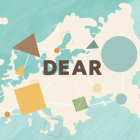Drivers of Belgian Youth Engagement (FR+NL w/EN summary)
This qualitative study of Belgian 15 to 19-year-olds (in French and Dutch) examines their values, motivations and barriers to become socially and/or politically active. Climate change, racism, gender and other inequalities stand out as the issues that encourage them to become active. “The poor become more and more poor, and the rich more and more rich. We cannot remain indifferent to this,” says 17-year-old Eleonore.
Many expressed strong emotions such as anger and sadness, indicating a deep personal connection to these issues. They also felt a responsibility to advocate for change, through public protests, social media and by educating their parents. “I am the one that explained feminism to my parents,” says 16-year-old Léa.
Inspiring engagement
Youth engagement is often sparked by personal and emotional reactions to societal issues and lived experiences, rather than by abstract theories. Experiences of discrimination and inequality have prompted some to alter their behaviors, such as promoting inclusivity. “It is at our age that we begin to become aware of the inequalities we face,” Léa notes.
Family, school, peer groups, and political responsiveness to youth all shape youth engagement, with supportive parents and teachers playing key roles. Several students expressed a desire for more engagement opportunities through their schools.
Individual life experiences, including studies, hobbies and international exposure all significantly influence engagement choices. Engagement typically started locally, driven by personal experiences rather than large-scale themes or campaigns. Community projects with visible and tangible impact encourage taking action.
Barriers to engagement
On the other hand, lack of information on how to get involved and whom to contact was a common challenge. They described the engagement ecosystem as composed of distinct "bubbles", with limited interaction among them. Many feel overwhelmed by the variety of initiatives and organisations, leading to indecision about where to start. Twenty-year-old Mina describes her approach: “I take a look at everything and see what suits me. What are the options? What can I do? What impact can I have? Then, I see what steps I can take”.
Political engagement
Young people wavered between optimism about their potential to create a more equitable and sustainable future and frustration about the responses of political leaders. Of the youth surveyed, 63% reported little to no trust in the government, while 69% felt the same about politicians in general. Youth are politically aware and engaged but often feel their voices are not adequately represented in formal political processes. In the words of 17-year-old Solène, “It seems like the government is untouchable, that it is indifferent... I can change my transphobic friend's mind, but not the politician’s.”
Conclusion
The authors call for a constructive dialogue between youth and political institutions to address their feeling of disconnect from traditional democratic processes.
“As a promoter of global citizenship and international solidarity,” we want to “strengthen the necessary bond between young people and the democratic system,” Enabel states. Beyond supporting local action, the Belgian agency highlights “interdependencies and responsibilities at the international level.”
This study was commissioned in 2021 by Enabel, Belgian’s Development Agency, its centre for Global Citizenship Expertise, BeGlobal (formerly Annoncer la Couleur) and Kruit. To research this report, the authors interviewed 33 young Belgians, who participated in nine debate groups around various types of activism, e.g. via their school, youth initiatives, online channels, and personal initiatives.

Log in with your EU Login account to post or comment on the platform.